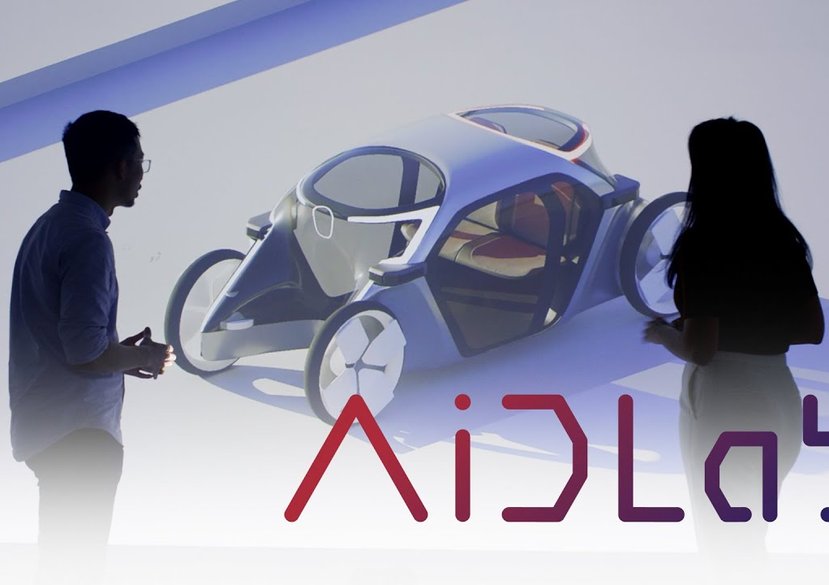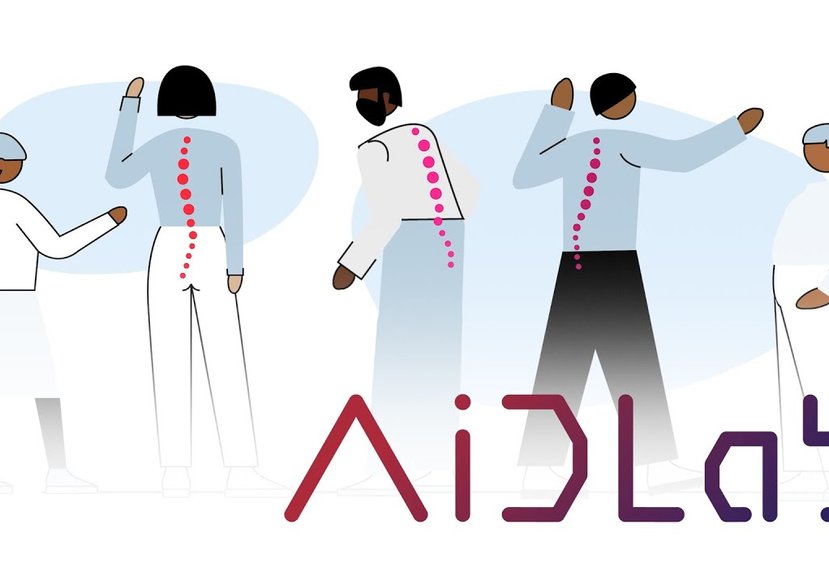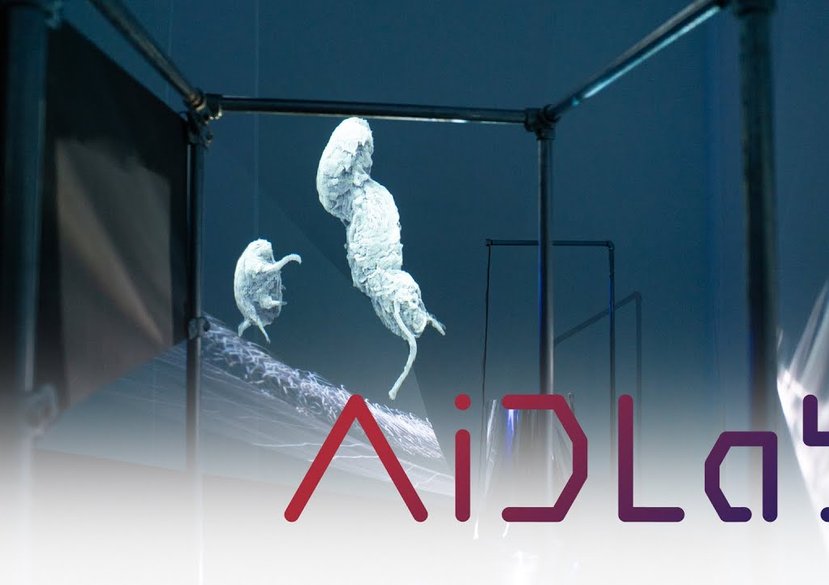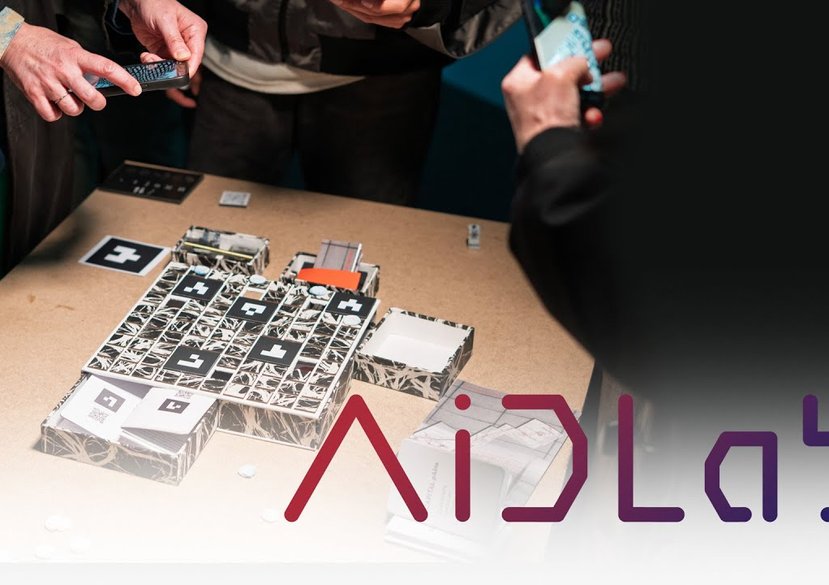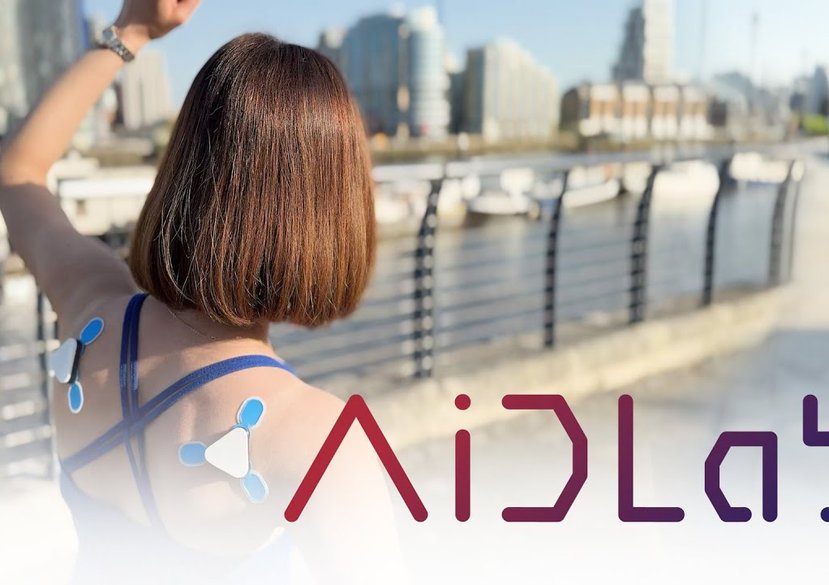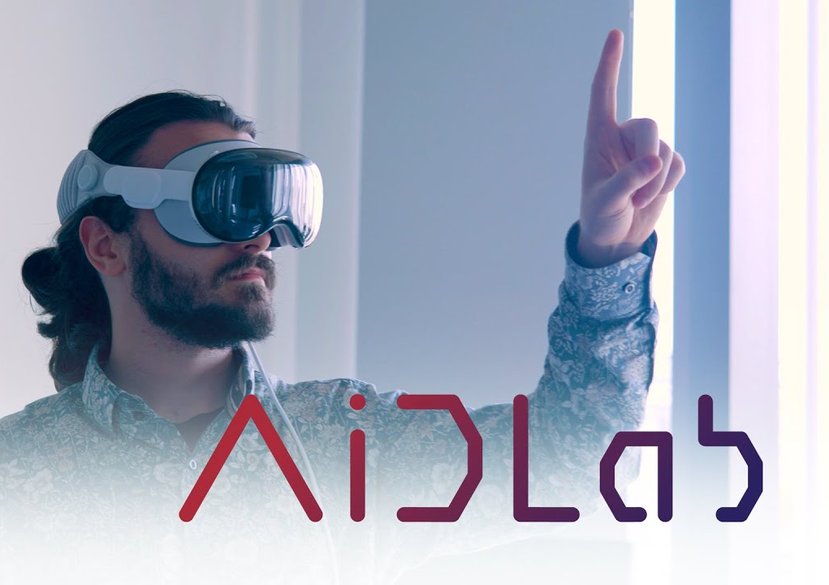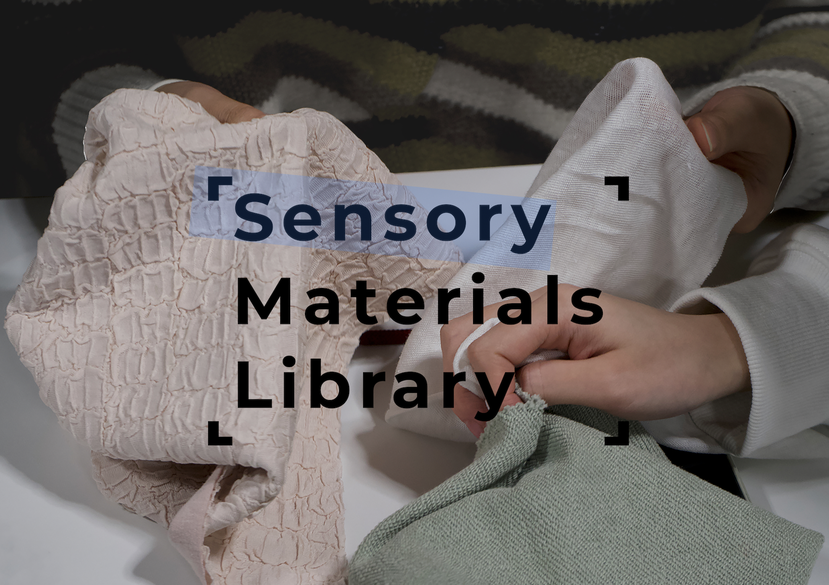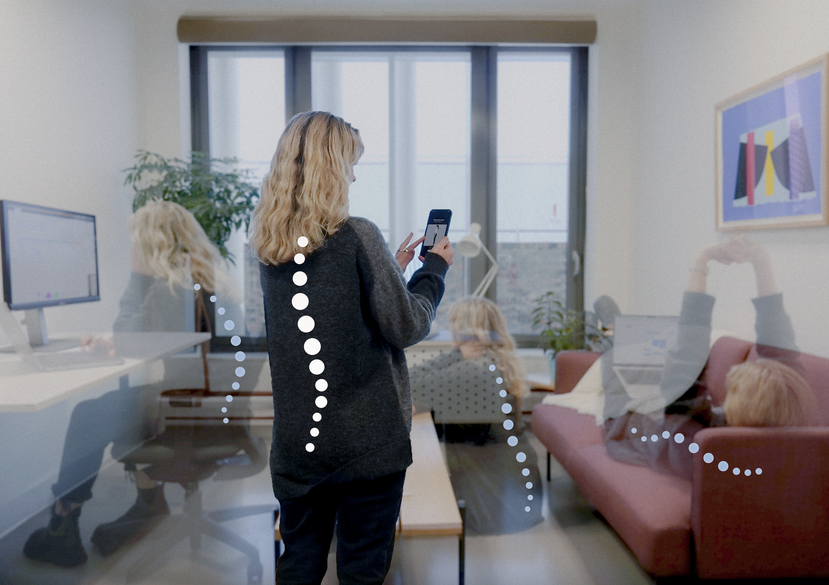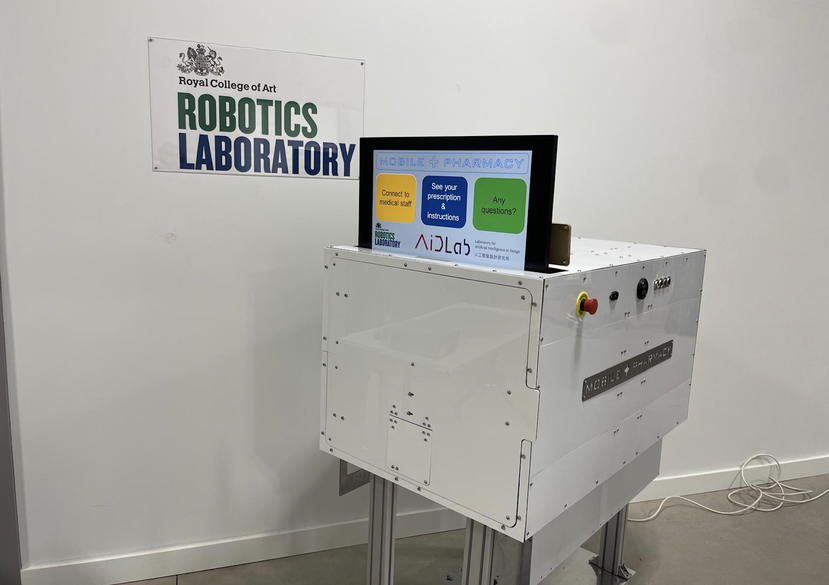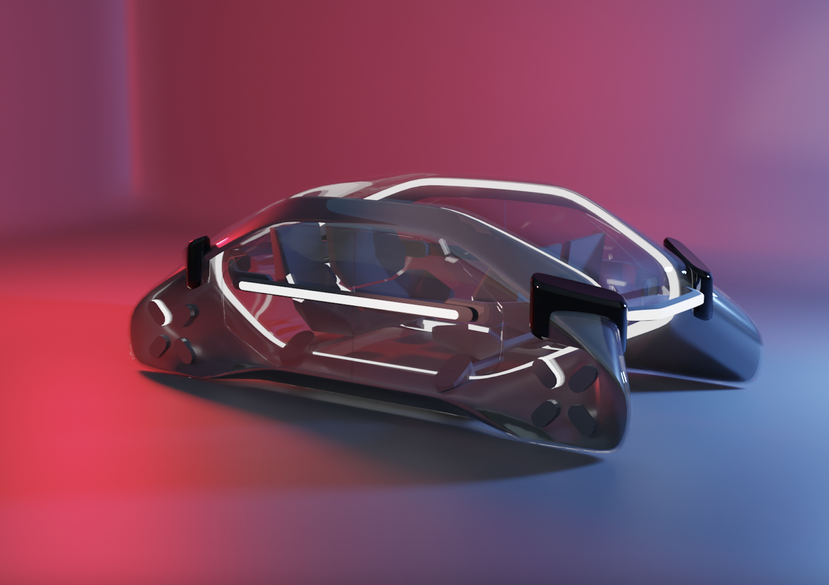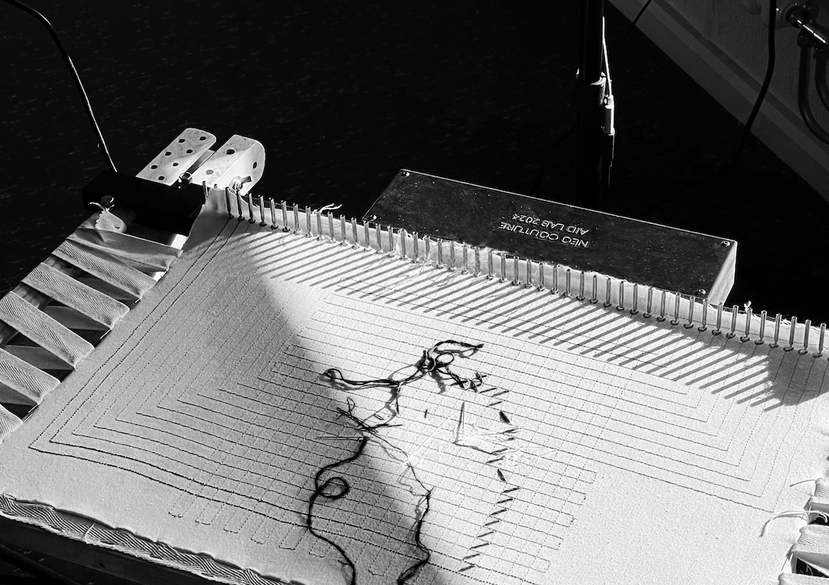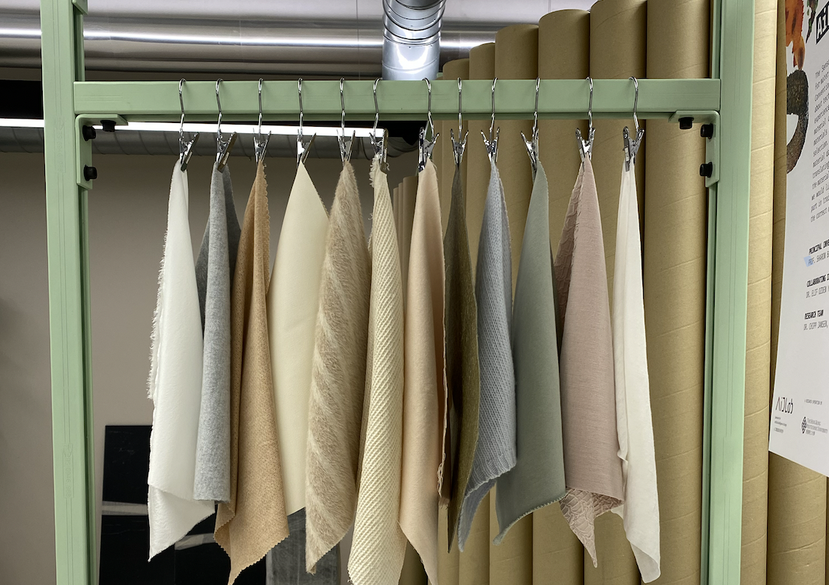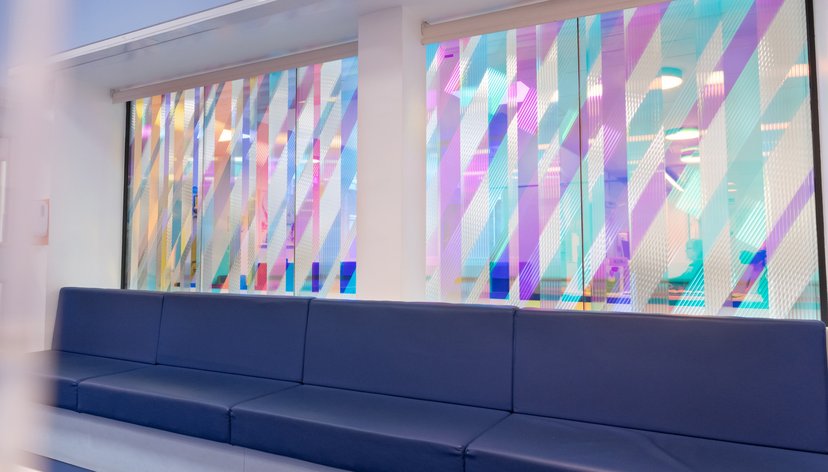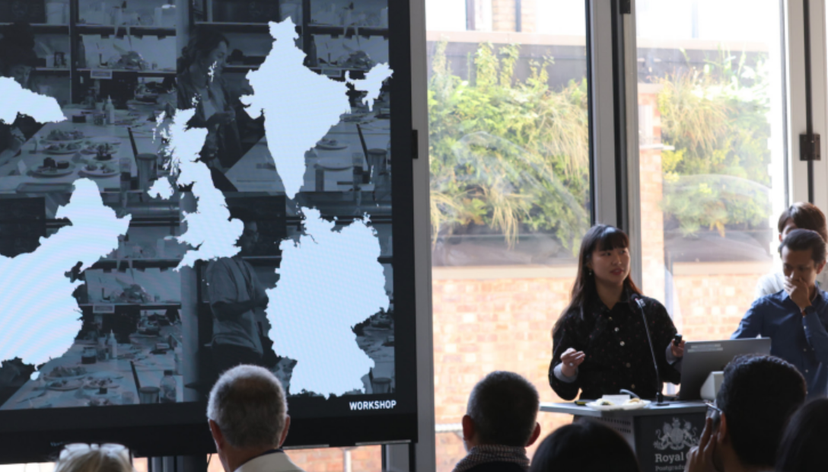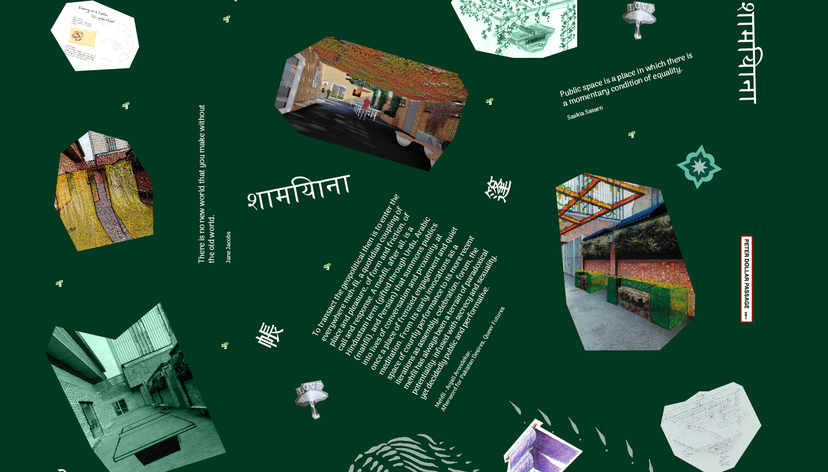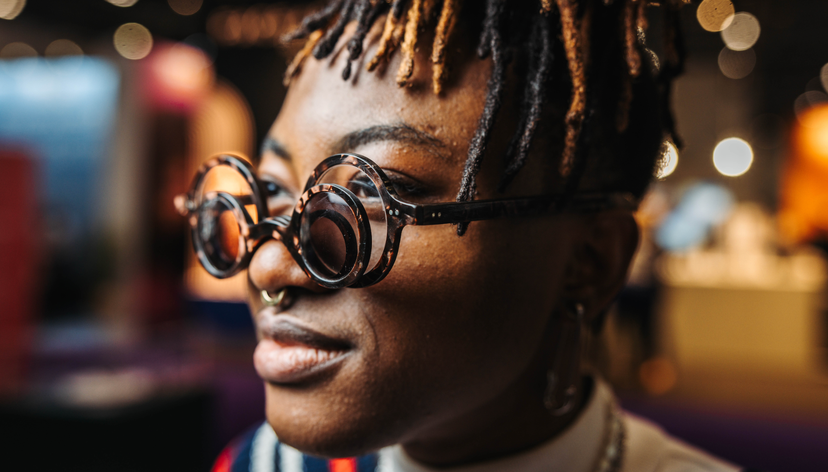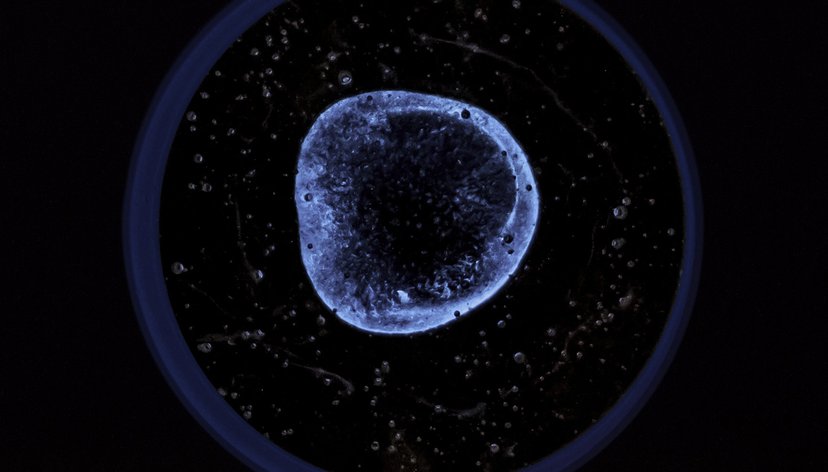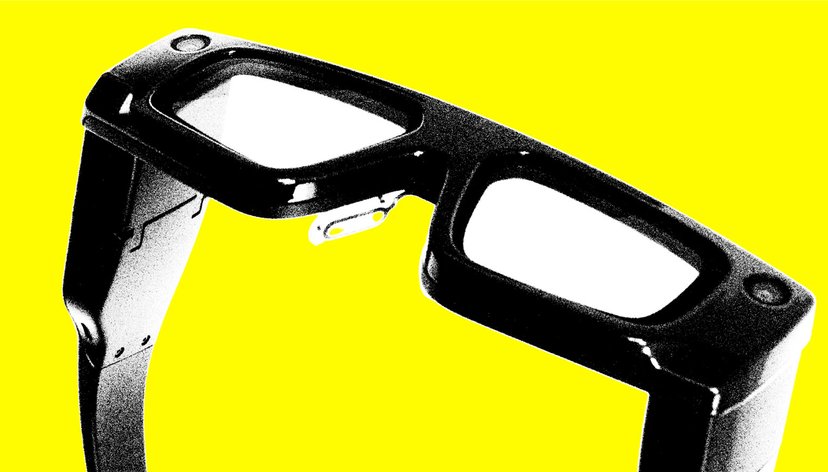
AiDLab is the first research platform that focuses on the integration of Artificial Intelligence (AI) with design. It was jointly established by The Hong Kong Polytechnic University (PolyU) and the RCA, and is funded by the HKSAR Government under the InnoHK Research Clusters.
Located at the Hong Kong Science Park, PolyU and the RCA, AiDLab has established a new creative cluster of AI in design. It is in a uniquely leading position to conduct interdisciplinary research that drives innovation and sustainability, and makes a positive impact on both industry and society.
AiDLab brings together a diverse mix of leading researchers and practitioners from its founding institutions to conduct research in two thematic programmes: Ergonomic and Inclusive Design, and Intelligent Fashion Design and Quality Control.
Over a decade of discovery and innovation, AiDLab has reimagined the boundaries between design, technology and the human experience.
In its first five years (2020–25), AiDLab brought together researchers and practitioners from its founding institutions to conduct research in three thematic programmes: Ergonomic and Inclusive Design, Innovation in Product and Service Design, Intelligent Fashion Design and Quality Control.
Current research (2025-2030) sits under the themes: AI in Fashion Design, AI in Textile and Apparel Quality Control and AI in Ergonomic.
Key details
Gallery
Our projects
3D Modelling for Wellbeing
Incorrect posture can lead to severe musculoskeletal spine conditions that affect people of all ages, but disproportionately impact those under 30. This is the largest negative factor affecting the quality of life and is one of the leading causes of injuries resulting from home-office blended working practices. It presents challenges to both employers and employees as we adopt new ways of working after the pandemic, involving the use of the home, coffee shops, and the office in emergent ways.
This project focuses on mapping posture behaviours in 3D environments using novel sensory solutions to assess the effects of incorrect posture on health and well-being. The aim is to arrive at personalised interventions.
Project leads
Rama Gheerawo – Co-Principal Investigator
Director, Helen Hamlyn Centre for Design
Dr Ali Asadipour – Co-Principal Investigator
Director, Computer Science Research Centre
Project team
Dr Narges Pourshahrokhi
Postdoctoral Research Associate, Computer Science Research Centre
Tong Lo
Research Associate, Helen Hamlyn Centre for Design
Intelligent Design System for Innovation
The Sensory Materials Library is developing a materials library to make the sensory properties of materials accessible. The Sensory Materials Library and an embodied knowledge design input tool, AiLoupe, enable human intervention and creativity, and so permit a responsive manufacturing process. The project is aimed at harnessing implicit, embodied knowledge to enable distributed and democratic design. Through image-based material classification, AiLoupe presents sensory properties to designers by recalling materials in the built database.
Project leads
Professor Sharon Baurley – Co-Principal Investigator
Director, Centre for Materials Science & Culture
Dr Elif Ozden-Yenigun – Co-Principal Investigator
Senior Tutor, School of Design
Project team
Dr Chipp Jansen
Postdoctoral Research Associate, Centre for Materials Science & Culture
Lissy Hatfield
Research Associate, Centre for Materials Science & Culture
AI Design for Autonomous Mobility
Autonomous Vehicles are expected to lead to disruptive and eventually transformative changes in mobility. There is, however, also a public sense of distrust and apprehension, while the purposeful design for trust and acceptance is critical. Autonomous vehicle journey experiences that are inclusive and joyful will become key commercial differentiators for mobility providers, and persuade the public towards more sustainable choices of transport.
Project leads
Professor Dale Harrow – Co-Principal Investigator
Director, Intelligent Mobility Design Centre
Dr Cyriel Diels – Co-Principal Investigator
Deputy Director, Intelligent Mobility Design Centre
Project team
Yichen Shu
Research Associate, Intelligent Mobility Design Centre
Small Scale Robotics
The project aims to develop an AI-powered medicine management system and AI-powered space and process modelling platform with applications within pharmacy environments. The research aims to solve issues and delays caused by the substantial daily volume of prescriptions within pharmacies, to streamline sales efficiency and security as well as increase accessibility to needed medication for those in remote areas.
Project leads
Dr Sina Sareh – Co-Principal Investigator
Academic Lead, Robotics
Dr Ali Asadipour – Co-Principal Investigator
Academic Lead, Computer Science Research Centre
Project team
Dr Mohammad Kargar
Postdoctoral Research Associate, Computer Science Research Centre
Rasoul Sadeghian
Senior Research Associate, Robotics
Real-World Artificial Intelligence Narratives
Working with communities that are investigating more sustainable models of computing informed by views of AI (including its materialities and epistemologies, feedback loops, datasets and narrative structures with interspecies communities), this project aims to address cultural bias and closed systems in existing AI. The intention is to enable new forms of digital storytelling intertwined with the development of new AI technologies, including the prototyping and publishing of narrative models that prioritise and make accessible the exploration of collective agency, ethical and creative forms of interaction and exchange.
Project leads
Tom Simmons – Co-Principal Investigator
Professor Johnny Golding – Co-Principal Investigator
Project team
Dr John Wild
Postdoctoral Research Associate
Manuela Luksch
Senior Research Associate
Mukul Patel
Senior Research Associate
Artificial and Distributed Intelligence and the 4th Industrial Revolution
The first strand focuses on the importance of 'noise' and 'indeterminacy'. Generative adversarial networks using Ai and Di single-bodied agents develop a new practical methodology that can take into account emergence, 'noise', and 'edge' to show how 'error', 'noise' and 'undecidability' is critical to re-think the compressibility of Industry 4.0's emerging communication patterns.
The second strand focuses on the development of NOVA: Nutritional Yield Optimization via AquaVision. Nova is an intelligent kelp harvesting system utilising AI and machine vision for advanced image recognition. By analysing visual characteristics such as colour, size, maturity, and texture of kelp seaweed, the system offers an economical solution for optimising kelp harvesting accessible to all economies. With the kelp farming industry valued at USD 261 million and its widespread applications in cosmetics, food, pharmaceuticals, and packaging, this innovation holds significant promise for various sectors.
Project leads
Professor Johnny Golding – Co-Principal Investigator
Dr Sina Sareh – Co-Principal Investigator
Academic Lead, Robotics
Project team
Maggie Roberts
Senior Research Associate, School of Arts and Humanities
Jeremy Keenan
Senior Research Associate, School of Arts and Humanities
Shahrooz Shahin
Research Associate, AI and Robotics
Neo-Couture
As the number of artisans in haute couture has dwindled since the mid-20th century, this project seeks to harness digital technology to preserve and enhance traditional craftsmanship. By working with haute couture artisans to collect data and insights from their expertise, we will train intelligent systems for use in a user-friendly digital training platform targeted at novice users who may not have knowledge of these rarefied and nuanced crafts.
Project leads
Project team
Louis Alderson-Bythell
Research Associate, Associate Lecturer, School of Design
